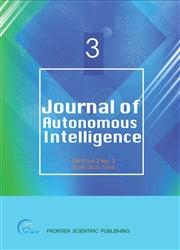Automatic Text Summarization for Urdu Roman Language by Using Fuzzy Logic
引用次数: 1
Abstract
In the new era of technology, there is the redundancy of information in the internet world, which gives a hard time for users to contain the willed outcome it, to crack this hardship we need an automated process that riddle and search the obtained facts. Text summarization is one of the normal methods to solve problems. The target of the single document epitome is to raise the possibilities of data. we have worked mostly on extractive stationed text summarization. Sentence scoring is the method usually used for extractive text summarization. In this paper, we built an Urdu Roman Language Dataset which has thirty thousand articles. We follow the Fuzzy good judgment technique to clear up the hassle of text summarization. The fuzzy logic approach model delivers Fuzzy rules which have uncertain property weight and produce an acceptable outline. Our approach is to use Cosine similarity with Fuzzy logic to suppress the extra data from the summary to boost the proposed work. We used the standard Testing Method for Fuzzy Logic Urdu Roman Text Summarization and then compared our Machine-generated summary with the help of ROUGE and BLEU Score Method. The result shows that the Fuzzy Logic approach is better than the preceding avenue by a meaningful edge.基于模糊逻辑的乌尔都罗马语文本自动摘要
在新的技术时代,互联网世界中存在着信息的冗余,这给用户带来了一段艰难的时间来包含它的意志结果,为了解决这个困难,我们需要一个自动化的过程来谜语和搜索获得的事实。文本摘要是解决问题的常用方法之一。单一文档概要的目标是提高数据的可能性。我们主要致力于抽取驻扎文本摘要。句子评分是抽取文本摘要常用的方法。在本文中,我们建立了一个乌尔都语罗马语数据集,其中有3万篇文章。我们采用模糊良好判断技术来解决文本摘要的麻烦。模糊逻辑方法模型提供具有不确定属性权重的模糊规则,并生成可接受的轮廓。我们的方法是使用余弦相似度和模糊逻辑来抑制摘要中的额外数据,以提高所提出的工作。我们使用标准的模糊逻辑乌尔都罗马文本摘要测试方法,然后将我们的机器生成摘要与ROUGE和BLEU评分法进行比较。结果表明,模糊逻辑方法比前面的方法要好一个有意义的边。
本文章由计算机程序翻译,如有差异,请以英文原文为准。
求助全文
约1分钟内获得全文
求助全文

 求助内容:
求助内容: 应助结果提醒方式:
应助结果提醒方式:


